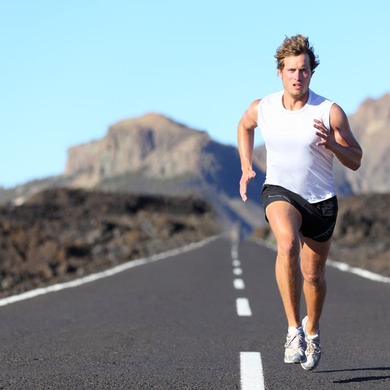"It used to be standard practice that the pre-match meal consisted of egg, steak and chicken. But I talked them into changing to complex carbohydrates. So now they will sup on porridge, pasta or rice."
- Craig Johnston, Liverpool Football Club, 1989

We live in an era where carbohydrates tend to be blamed for many things that go wrong with our health. It is probably right that excessive intake of unhealthy , refined carbohydrates has contributed to the obesity epidemic and increased the prevalence of type 2 diabetes in western societies. That does not mean that all carbohydrates are bad. Carbohydrates are probably the most important source of energy for the human being. In some countries, 80% or more of daily caloric intake is carbohydrate. Besides providing energy, foods rich in carbohydrates, such as whole grains, legumes, fruits and vegetables are also good sources of vitamins, dietary fiber.
Low carbohydrate diets have become very popular in the treatment of overweight and obesity. These diets often work very well if you have to lose weight indicating that excessive carbohydrate intake may have contributed to the overweight. Insulin resistance is quite common among obese people making it more difficult for their body to utilize carbohydrates as a source of energy. Some experts have termed this problem "carbohydrate tolerance". We also have to keep in mind that carbohydrates are not all the same. Complex carbohydrates and carbohydrates with a low glycemic index are a better and healthier option than simple, processed carbohydrates. If good health is what you prefer, you will choose whole corn bread and a banana rather than a donut and a caramel bar.
The great popularity of many low-carbohydrate diets has led many people to believe that carbohydrates are "bad", that they cause obesity and diabetes.That's a dangerous oversimplification. Easily digested carbohydrates from white bread, white rice, pastries, sugared sodas, and other highly processed foods may, indeed, contribute to weight gain and interfere with weight loss. However, except maybe for the overweight and obese, the best sources of carbohydrates, fruits, vegetables, beans, and whole grains are good food choices. and will deliver essential vitamins, minerals, fiber, and a host of important phytonutrients.
If you are an athlete or participate in regular physical training, meeting energy needs is critical for your performance and wellbeing. Eating the right the type and amount of food may be as important as the training itself. Sports nutritionists usually recommend eating small, frequent meals to maintain energy metabolism. During times of high physical activity, carbohydrate and protein intake is important to maintain body weight, replenish glycogen stores and provide proteins for building and repairing tissues, especially muscle. In this article I will focus on carbohydrate intake which is of critical importance for your physical wellness as a sports person and will help you improve your physical performance.
Carbohydrate loading - Menu suggestion
The following diet is suitable for a 70kg athlete aiming to carbo-hydrate load:
Breakfast
3 cups of low-fibre breakfast cereal with 11/2 cups of reduced fat milk
1 medium banana
250ml orange juice
Snack
toasted muffin with honey
500ml sports drink
Lunch
2 sandwiches (4 slices of bread) with filling as desired
200g tub of low-fat fruit yoghurt
375ml can of soft drink
Snack
banana smoothie made with low-fat milk, banana and honey
cereal bar
Dinner
1 cup of pasta sauce with 2 cups of cooked pasta
3 slices of garlic bread
2 glasses of cordial
Late Snack
toasted muffin and jam
500ml sports drink
This sample plan provides ~ 14,800 kJ, 630 g carbohydrate, 125 g protein and 60 g fat.
Adopted from:
The Australian Insitstute of Sport
Guidelines for athletes recommend high carbohydrate intake during training. A high carbohydrate diet helps increase glycogen stores and extend endurance. It may also prevent mental as well as physical fatigue. Research studies indicate that carbohydrate should supply a minimum of 60% of total calories. This is important for endurance athletes as well as stop-and-go sports such as soccer and basketball.
It is recommended that dietary carbohydrates for athletes should mainly come from complex carbohydrates. Some athletes may need some simple sugars as well but their consumption should be minimized.
Carbohydrate loading - what does it do? - when will it help?
Glucose is the main fuel for the cells of the human body. The body can store glucose as glycogen, mainly in the liver and skeletal muscle. In skeletal muscle, glycogen grants access to glucose during muscle exercise. Liver cells also use glycogen to control blood sugar levels. By breakdown of glycogen, the liver can pump 100 - 150 milligrams of glucose into the bloodstream every minute for twelve ours if needed. After that the stores will be depleted.
It is possible for you to fill up your glycogen stores prior to training or competition by a process called carbohydrate loading. This is performed by increasing carbohydrate intake for the last few days, up to a week before competition and at the same time reduce your training intensity. It is usually enough to have 60 to 70 percent of total calories come from carbohydrate. By doing this you may be able to significantly increase your glycogen stores. Studies on athletes have shown that the glycogen stores in exercising muscles may more than double by performing carbohydrate loading. If you are a runner this will help you keep a faster pace for a longer time which is probably a good thing.
However, there is one downside to carbohydrate loading, and that is water retention. For each gram of glycogen stored the body stores about three grams of water. This may in some cases lead to weight gain which may be a problem under certain conditions and can cause discomfort.
When should you do carbohydrate loading? If you are going to participate in aerobic activity for less than 60 minutes, carbohydrate loading will probably not provide much benefit. However, it is probably helpful to taper your training program for the last few days before competition and increase your carbohydrate intake for the last couple of days before the event.
Carbohydrate intake before and during exercise
Carbohydrates are your most important source of energy during the last few hours before competition. Protein and fat take longer time to digest and will probably not help you much short term. Eating carbohydrates two to four hours before exercise may help you replenish your glycogen stores. However, you must avoid gastrointestinal distress. You will not want to fill up your stomach and intestine to much with food, but at the same time you will want to avoid hunger. To find this balance may not be an easy task which is why liquid carbohydrates me be preferred during the last two to four hours before competition.
Should you eat the last hour before competition? It will depend on whether you have refueled enough the last three hours before or not. However, you should probably not eat solid food during the last hour before activity as it might upset your stomach.
During exercise you could supply fuel to exercising muscle by consuming beverages with moderate amount of simple carbohydrates. If the events lasts an hour or more, drinking sports drinks with 4 to 8 percent carbohydrate may enable you to exercise longer and possibly sprint faster at the finish. If the event lasts for less than an hour, plain water will probably be enough for you.
